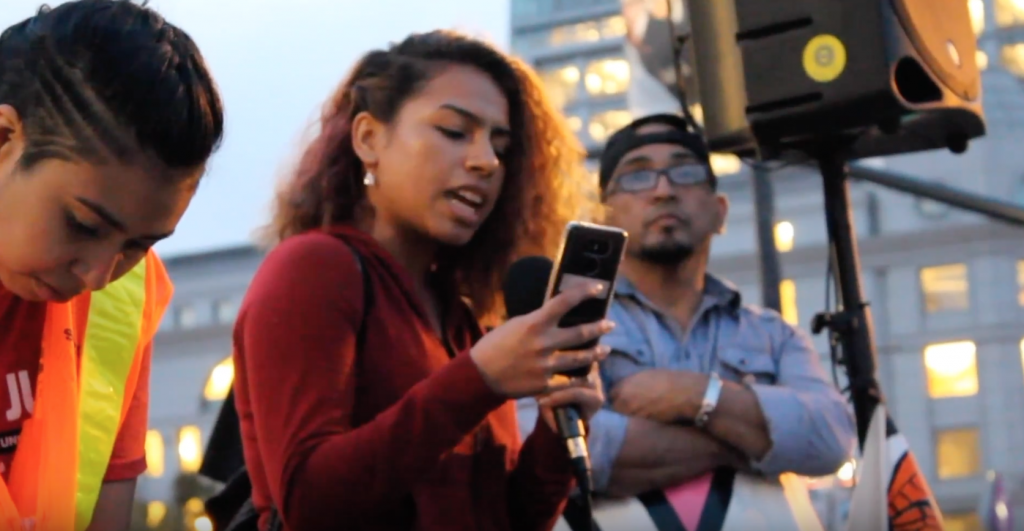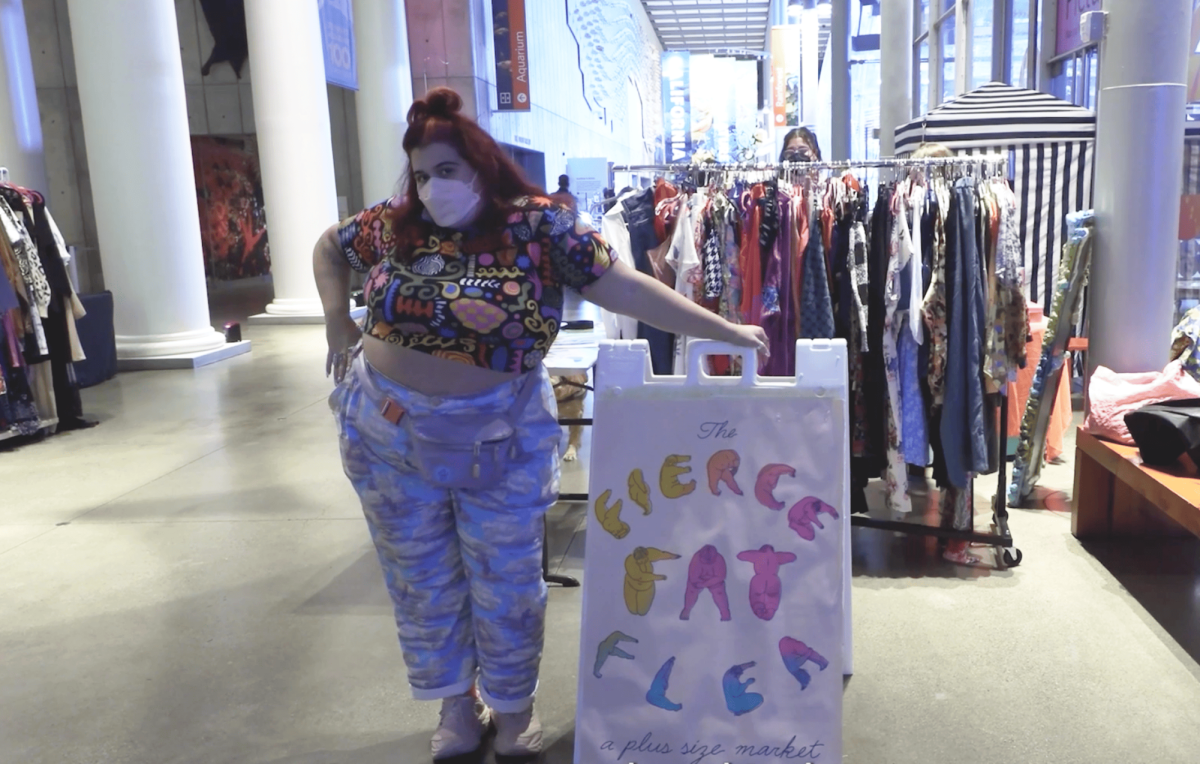“Everybody wants to be hood, see hood, live hood, rep hood, but still call the hood babies hoodrats as they feel distasteful at the thought of an alley with a sofa they claim we have so much in common with, you know? Since apparently we’re both abandoned.”
Toward the end of Tuesday’s DACA rally at the San Francisco Federal Building, SF State student Nicolette Portillo performed a spoken word poem, called “Culture Vulture”, during the open mic portion of the evening.
The crowd, full of people of all different ages, gender identities, races and political parties, held up signs and maintained a consistent energy level fueled by the drumming circle and constant chanting from 5 p.m. to around 9 p.m.
There was an air of compassion for those affected by the ending of DACA and a consensus of rage towards the Trump administration for making the decision to do so.
A makeshift stage was created by setting up two amplifiers in the bed of a U-Haul pickup truck and the protesters leading the chants were standing up in the back of it. The truck led the march down Market Street and then brought the protesters together in front of city hall.
The police officers surrounded the protesters and watched the peaceful protest play out with looks of weariness as yet another rally took place in the center of the city.
The Dreamers running the rally opened the stage to anyone willing to contribute to the various speeches that denounced Trump’s decision to end the program that enabled young, undocumented immigrants to live, work and study in the U.S.
Portillo explained that she is fortunate enough to not have to worry about being deported, but she has many friends and family members facing an immediate risk of being sent to the country they were born in.
“Some of my family members are on DACA and it’s helped them achieve their dreams. That is why they came here, and for someone to take that away from them, all their hard work was just a waste of time,” Portillo said.
Portillo is a sophomore political science student. The crowd listened intently as her well-rehearsed poem about colonialism and cultural appropriation rhythmically poured out of her. Hundreds of people shouted in support of her words every time she paused for a breath.
“I wrote the poem a few months ago. I was angry that I was seeing a lot of offensive post-colonialism today. I saw how a lot of people were making fun of our cultures in the past but today, it’s now all trendy and stuff,” she said. “It angered me, and one day I just couldn’t take it anymore so I put all my emotions and all my feelings into that piece.”







